Join a powerful, unprecedented alliance for better eye health for all.
Join IAPB-
Choose an alternate language here
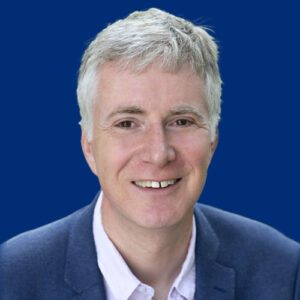
Chief Executive, IAPB
Peter Holland has been Chief Executive of the IAPB since May 2018. Mr. Holland has also worked in the UK’s Foreign and Commonwealth Office, the National Health Service and the Royal National Institute of the Blind. After 10 years developing primary care services in the NHS in south London, Mr. Holland joined the FCO where his roles included postings to India and Afghanistan, senior policy roles on counter narcotics and negotiating international intellectual property agreements. At IAPB, Mr. Holland is taking a lead at a global level to promote eye health and to ensure its critical importance to the delivering of UN Sustainable Development Goals.
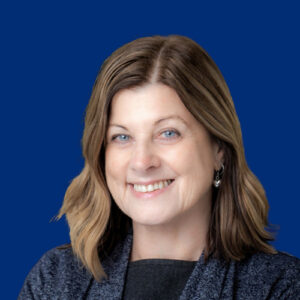
Executive Director, Global Advocacy, The Fred Hollows Foundation
Jennifer has extensive experience working in government and the not-for-profit sector, leading a wide range of social marketing campaigns aimed at raising awareness, changing behaviour and influencing key decision makers. She has worked across the health, disability and international development sectors and has a reputation for fostering collaboration and delivering results by applying innovative strategic approaches to advocacy.
After a successful decade as CEO of Vision 2020 Australia, Jennifer joined The Fred Hollows Foundation in 2016. In addition to managing sector engagement globally and leading advocacy efforts across The Foundation, she is a champion for gender equity.
Jennifer is a Trustee on the Board of the International Agency for the Prevention of Blindness where she continues to promote positive action towards gender and inclusion, chairing the Gender Equity Work Group.
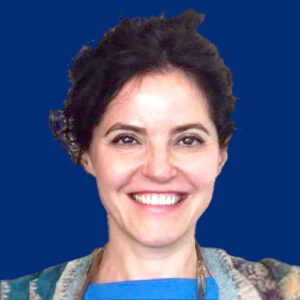
Unit Head, World Health Organization
Dr. Alarcos Cieza is a native of Spain. Prior to joining WHO in September 2014, she served as Chair and Professor of Medical Psychology at the Faculty of Social and Human Sciences at the University of Southampton in the United Kingdom. After obtaining her MSc in psychology in Madrid, Spain, she conducted a Master in Public Health and obtained a PhD in Medical Psychology from the Ludwig-Maximillians University in Munich, Germany.
She led the research unit for over ten years at the Department of Physical Medicine and Rehabilitation and then at the Pettenkofer School of Public Health at the Ludwig-Maximilians-University, Munich, Germany.
Dr. Cieza oversees WHO’s work on vision, hearing, rehabilitation and disability. This includes the implementation of the Universal eye health: a global action plan 2014 – 2019, the World Health Assembly Resolution 70.13, Prevention of deafness and hearing loss, and the Disability Action Plan 2014-2021.
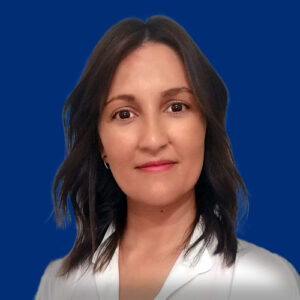
Consultant, World Health Organization
Consultant to the Vision and Eye Care Programme at WHO.
PhD Student with Dissertation on Epidemiology of Visual Conditions and Public Eye Health. Advocate for Universal Access to Eye Care.
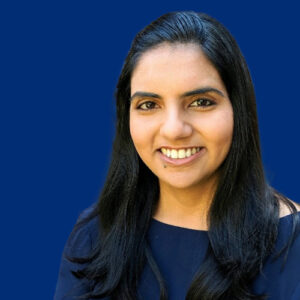
Consultant, World Health Organization
Mitasha Yu is a public health expert with over 16 years’ experience in public health eye care, international development, and optometry.
Mitasha works at the World Health Organization in the Vision and Eye Care Programme. One of her focus areas is the human resource development, including leading the development of the Eye Care Competency Framework, which is a critical tool for workforce planning and development.
She is also the Co-Chair of the Climate Action Working Group at the International Agency for the Prevention of Blindness, as she is passionate about promoting the link between climate change and eye care, and climate action strategies the sector can implement.
Mitasha holds a Bachelor of Optometry and a Master of Public Health from the University of New South Wales, Australia.
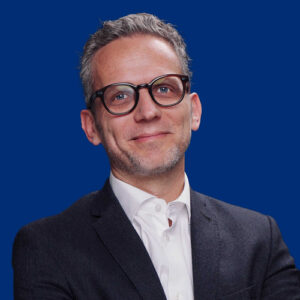
Consultant, World Health Organization
Dr Andreas Mueller (PhD, MPH) works with the World Health Organization Headquarters Vision and Eye Care Programme. He has a background in vision sciences research and epidemiology and has worked in various sectors of the public health field – academia, the nongovernment sector and within the UN system.
Between 2011 and 2016, he led the WHO Prevention of Blindness Programme at the Regional Office for the Western Pacific Region, where he was responsible for the development of the first WHO regional action plan for the prevention of blindness. Research interests include innovative strategies to improve the quality and effectiveness to deliver eye care services in low- and middle-income countries, including the use of technology for population screening of vision and eye disease.
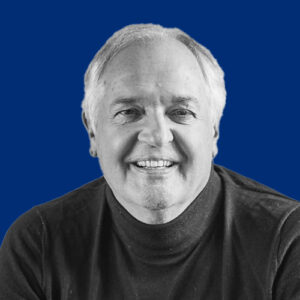
Chair of the Valuable 500, Vice Chair UN Global Impact
Paul Polman works to accelerate action by business to tackle climate change and inequality. A leading proponent that business should be a force for good, Paul has been described by the Financial Times as “a standout CEO of the past decade”.
As CEO of Unilever (2009-2019), he demonstrated that a long-term, multi-stakeholder model goes hand-in-hand with excellent financial performance. Paul was a member of the UN Secretary General’s High-Level Panel which developed the Sustainable Development Goals and which he continues to champion, working with global organizations and across industry to advance the 2030 development agenda.
Paul’s new book, “Net Positive”, is a call to arms to courageous business leaders, setting out how to build net positive companies which profit by fixing the world’s problems rather than creating them. He Chairs IMAGINE, a social venture dedicated to systems change, and Saïd Business School, and he is Vice-Chair of the UN Global Compact as well as a B Team Leader. Paul is Honorary Chair of the International Chamber of Commerce, which he led for two years.
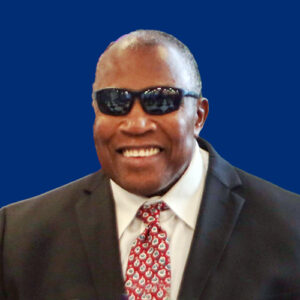
Permanent Representative of Antigua & Barbadu to the United Nations and c-chair of the United Nations Friends of Vision Group
Ambassador Webson is currently serving as the Chair of the Alliance of Small Island States (AOSIS), focusing on climate change, ocean action, and sustainable development.
Ambassador Webson has been Permanent Representative since 2014. Until his appointment, Mr. Webson had a long career with Perkins International, serving as its Director since 2011. Before that, he was the organization’s Director of Institutional Development and Coordinator of Education Programs for Africa and the Caribbean. Mr. Webson holds a doctorate in Management from Case Western Reserve University in Ohio and a Master of Science in Management of non-profit organizations.
Since at the United Nations, Ambassador Webson served as President of UNICEF in 2017 and President of the United Nations Development Programme board in 2020
He has co-facilitated many processes on behalf of the General Assembly, including the high-level meeting on tuberculosis, the Steering Committee on Accessibility and the Small Island Developing States Steering Committee.
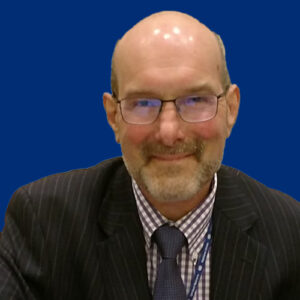
Director, World Health Organization
Werner Obermeyer is Director of the World Health Organization (WHO) office at UN Headquarters in New York. His portfolio includes the promotion of health in the General Assembly and other inter-governmental processes, the WHO’s relations with the UN system entities based in New York, as well as non-governmental organizations that focus on public health issues. He was responsible for the negotiations which culminated in adoption of the 2011, 2014 and 2018 Political Declarations on the Prevention and Control of Non-Communicable Diseases, the 2016 Political Declaration on Anti-Microbial Resistance, the 2018 Political Declaration on Tuberculosis and the 2019 Political Declaration on Universal Health Coverage.
He oversees initiatives related to the SDGs, global health and foreign policy, universal health coverage, heath security and social protection, road safety, malaria, climate change and health, disabilities, narcotics and drugs, mental health and tobacco control. Prior to joining the World Health Organization he was the representative of the UN Environment Program (UNEP) in New York, responsible for environmental governance, health determinants and sustainable development. Before joining the United Nations he served in the South African Foreign Service, holding various senior diplomatic assignments.
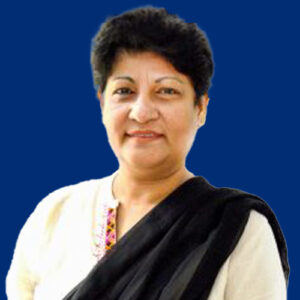
Country Manager, Fred Hollows Foundation
Dr. Zareen Khair is country manager of the Fred Hollows Foundation in Bangladesh. Dr. Khair began working with The Foundation since 2008.
In her current role, she is responsible on managing and taking the leadership role in overseeing the implementation of the Bangladesh Country Program on Eye Care in 4 Divisions of the Country namely Chittagong, Barisal, Khulna and Dhaka covering more than 32 districts and more than 50 million population.
Prior joining The Foundation in 2008, she worked in International Labor Organizations, World Food Program and United States Agency international Development (USAID).
She has more than 30 years of experience in global health, covering adolescent reproductive health, HIV/AIDS, Nutrition, Behaviour change communication, Social Marketing, Maternal Child Health, and Research.
Dr. Khair has done her B.A (Honours) and M.A in Sociology from University of Chittagong and Doctor of Philosophy (Ph.D) in Anthropology from University of Mysore, India.
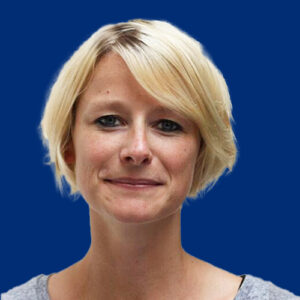
Chief Executive Officer, The NCD Alliance
Katie Dain is Chief Executive Officer of the NCD Alliance, a global network of civil society organisations dedicated to transforming the fight against non-communicable diseases (NCDs). Katie has worked with the NCD Alliance since its founding in 2009.
Katie is widely recognised as a leading advocate and expert on NCDs. Katie co-chairs the WHO Civil Society Working Group on NCDs, and has served as a commissioner on the WHO Independent High-Level Commission on NCDs, The Lancet Commission on NCDIs of the Poorest Billion, The Lancet Commission on Global Oral Health, and The Rockefeller-Boston University Commission on Health Determinants, Data and Decision-making (3-D Commission). Katie is also a member of the Steering Committee for the Coalition for Access to NCD Medicines and Products.
Her experience covers a range of sustainable development issues, including global health, gender equality and women’s empowerment, violence against women, and women’s health. Before joining the NCD Alliance, she held a series of policy and advocacy posts in international NGOs and government, including the International Diabetes Federation (IDF) in Brussels, leading their global policy and advocacy programme; the UK Government as a gender policy adviser; Womankind Worldwide, a women’s rights organisation; and the Terrence Higgins Trust (THT), a HIV and sexual health charity.
She has a BA in History from Sheffield University, and a Master’s degree in Violence, Conflict and International Development from the School of Oriental and African Studies (SOAS), London.
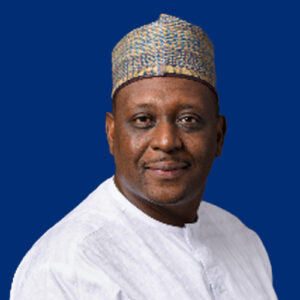
Julio Frenk Professor of the Practice of Public Health Leadership, Department of Global Health and Population, Harvard T. H. School of Public Health
Muhammad Ali Pate is currently the Julio Frenk Professor of the Practice of Public Health Leadership, in the Department of Global Health and Population at Harvard T. H. School of Public Health. He has recently completed his services as the Global Director, Health, Nutrition and Population (HNP) Global Practice of the World Bank and the Director of Global Financing Facility for Women, Children and Adolescents (GFF0). Prof. Pate was until recently the Chief Executive Officer of Big Win Philanthropy, based in the UK, and prior to that held several senior positions, including that of Minister of State for Health in the Federal Republic of Nigeria.
He was previously in the World Bank Group where he joined as a Young Professional in 2000 and worked on health issues in several regions including Africa and the East Asia and Pacific. Prof. Pate is an MD trained in both Internal Medicine and Infectious Diseases, with an MBA from Duke University. Prior to this he studied at the University College London. He also has a Masters in Health System Management from the London School of Hygiene & Tropical Medicine, UK.